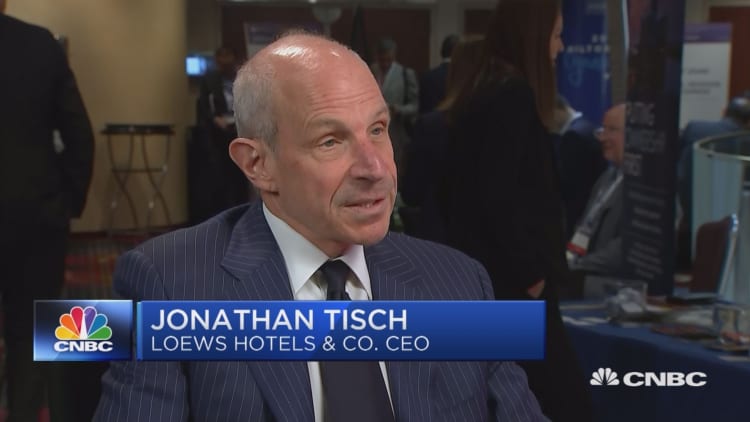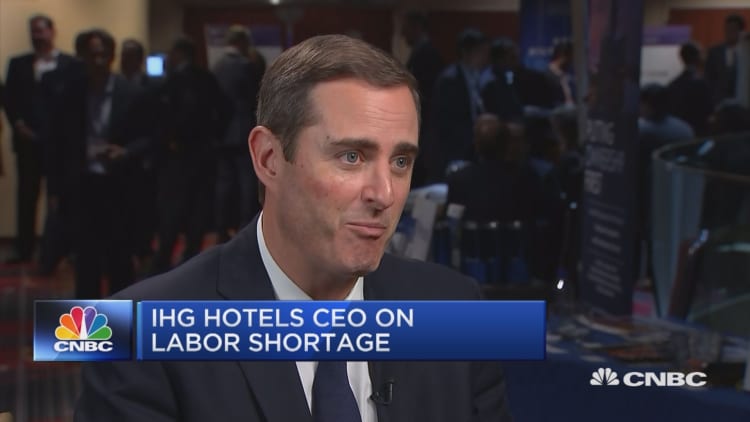
A number of hotel CEOs at the NYU Hospitality Conference in New York this week said tariffs and heightened rhetoric between officials in Washington, D.C., and Beijing have made the U.S. a less appealing destination for international travelers.
"The concern is that the image out around the world, where millions and millions are traveling for the first time, is that the U.S. is not a welcoming destination … and we continue to lose market share," Jonathan Tisch, CEO and chairman of Loews Hotels, told CNBC.
The latest data from the U.S. Commerce Department shows Chinese tourism to the U.S. has dropped for the first time in 15 years amid the ongoing trade war.
However, the U.S.-China tensions have emboldened U.S. hotel operators to double down on their expansions across China to ensure they get their brand in front of the important Chinese traveler.
Large hotel operators Marriott, Hilton and Hyatt have been aggressively expanding across China in 2019.
"On a global basis, one of the key megatrends is Chinese outbound travel," Hyatt CEO Mark Hoplamazian told CNBC.
Hyatt operates 70 hotels and counts 100 more in development across the country.
Intercontinental Hotels Group, the owner of Holiday Inn and Kimpton Hotels, is also laser-focused on expanding across China.
"I was just over in China two weeks ago and talking to top developers in China," IHG CEO Keith Barr told CNBC. "They are signing more hotels with us. We've just signed our 400th hotel there and have 400 more in development — so, real momentum there. But there is that uncertainty [due to tariffs]."

While market participants have grown worried about a consumer boycott of American brands in China, major hotel operators do not see signs of one inside the country.
"We haven't seen anything that would lead us to be concerned about that," Hyatt's Hoplamazian said. "I would also point out that we are a significant employer in China. We've got a number of important partnerships with major Chinese corporations that own our hotels. When you really think about the impact of a boycott or some sort of action against a brand like ours, it would actually impact a lot of local Chinese businesses including some state-owned enterprises."
Hyatt and IHG are also seeing opportunity in Vietnam, which has increasingly become a bigger tourist destination.
"One interesting thing I always pay attention to is do you see foreigners going into a country and buying real estate," said Hoplamazian. "And we've seen a surge in real estate acquisitions in Vietnam's resort destinations. A lot of people from China, Korea, even Japan are buying resort properties [in Vietnam]. We see this as a sign of an attractive market."
Vietnam has become a bigger focus for manufacturing, as well, with more U.S. companies looking to decouple from China in light of tariffs.
A recent study from Nomura's Asia team found that Vietnam is by far the largest beneficiary of the U.S.-China trade diversion, gaining 7.9% of GDP between the first quarter of 2018 and the first quarter of 2019.


